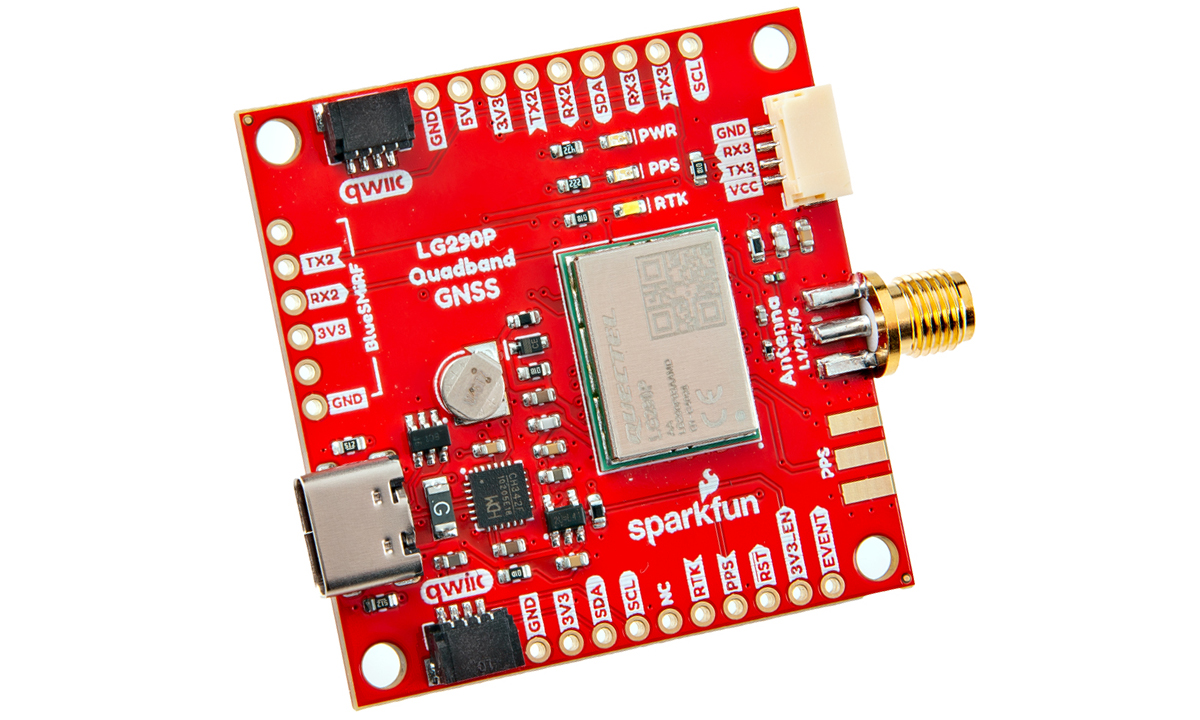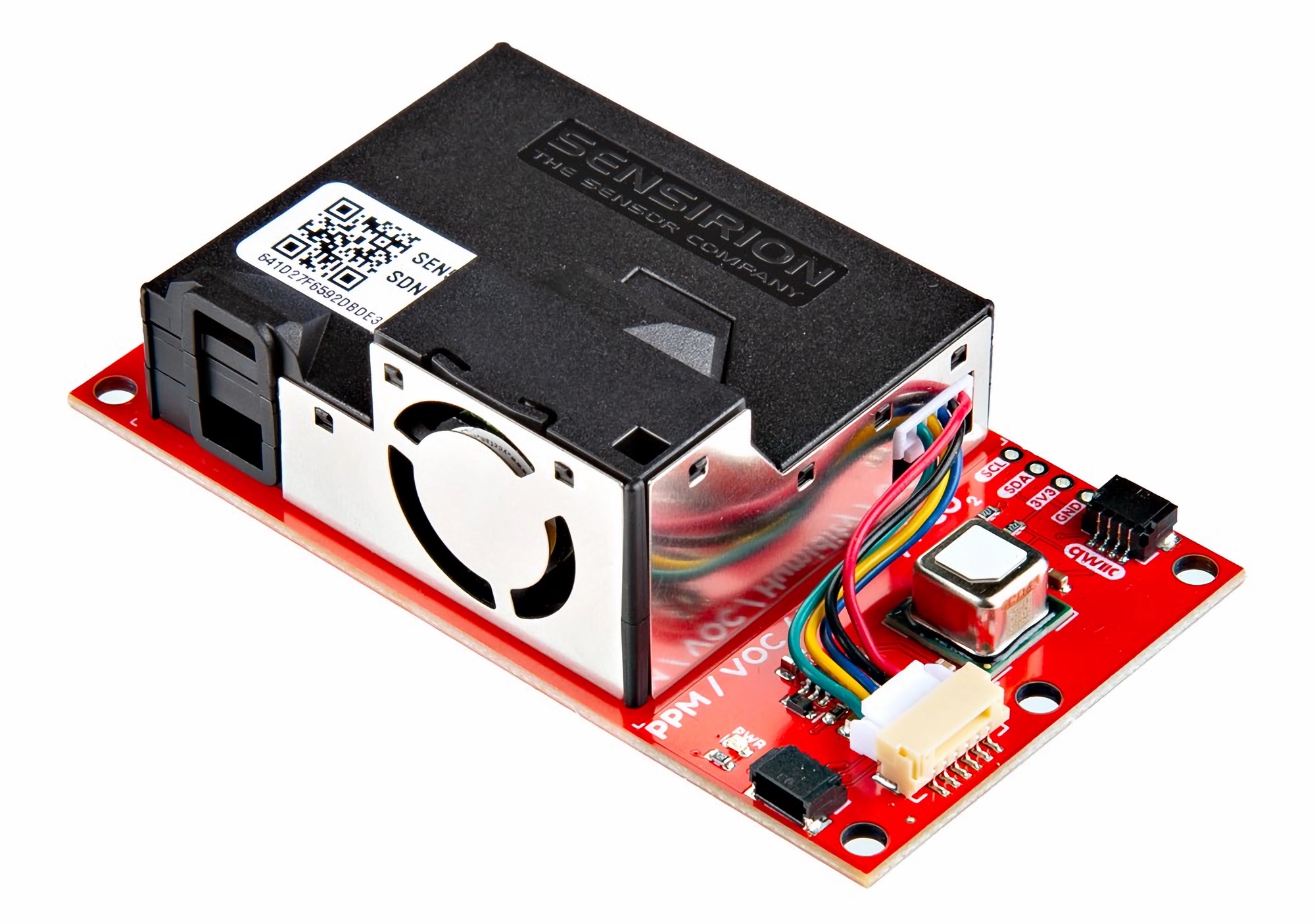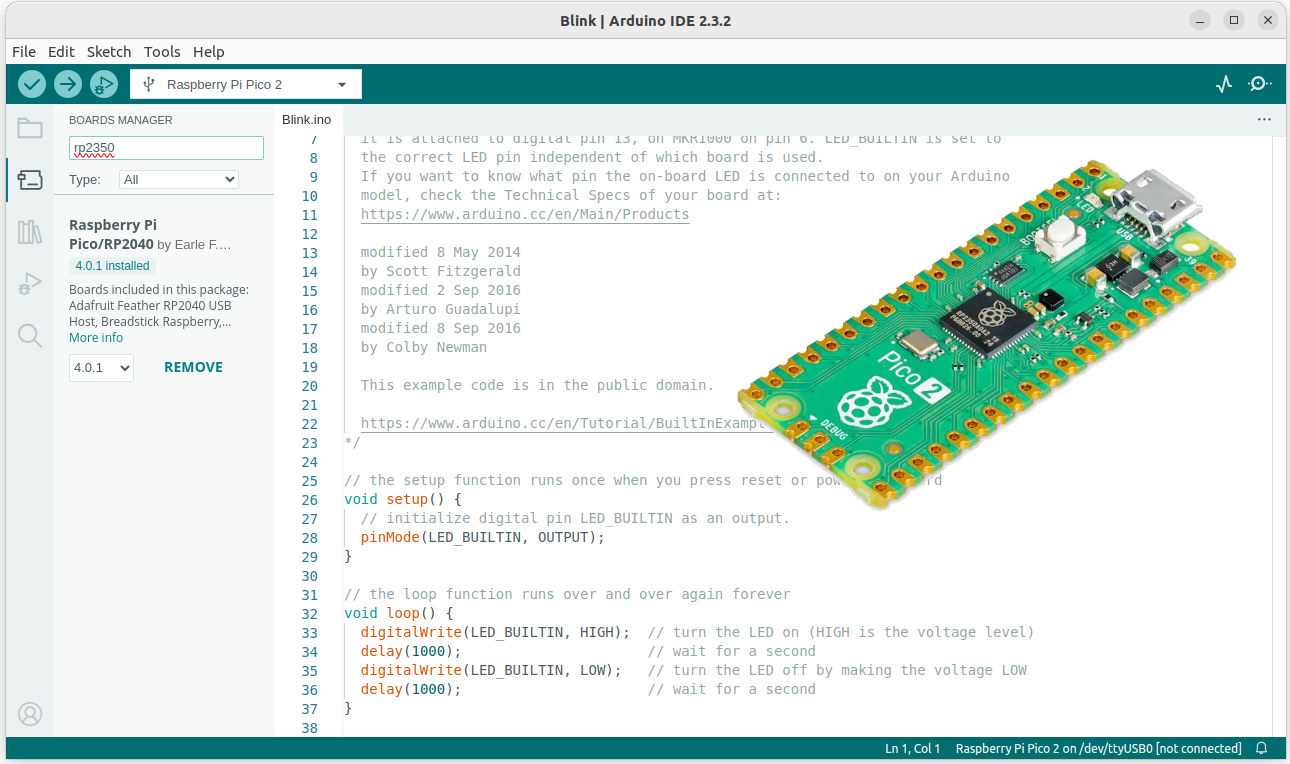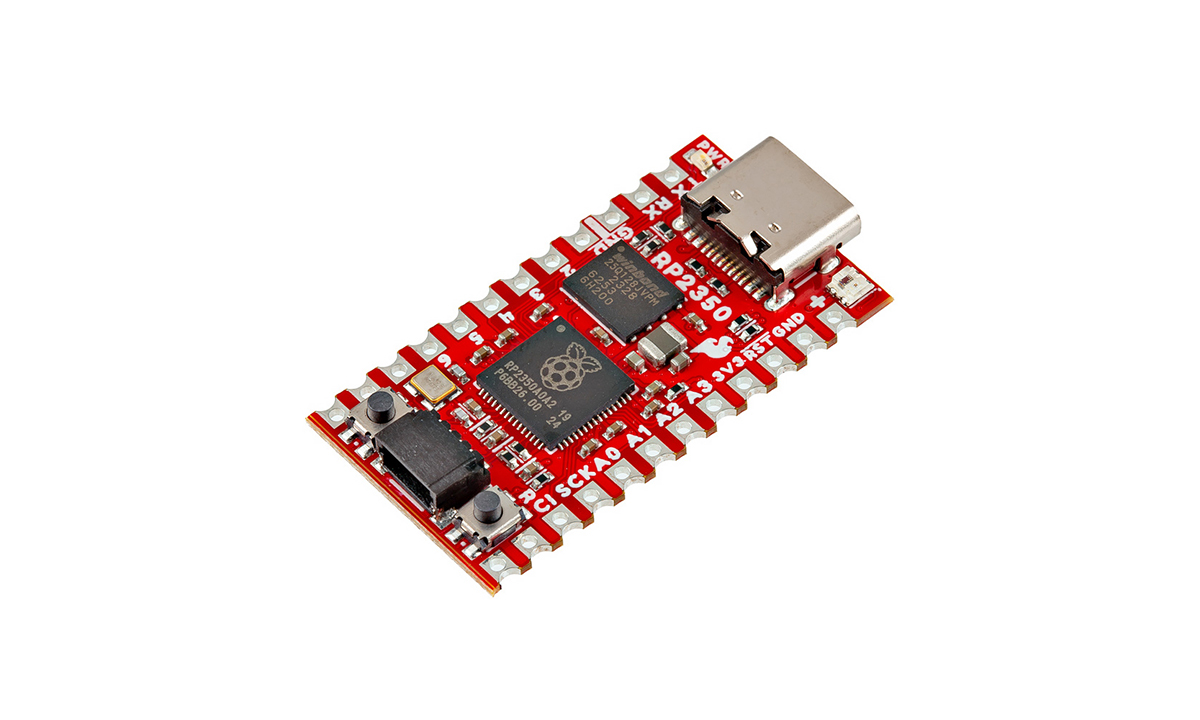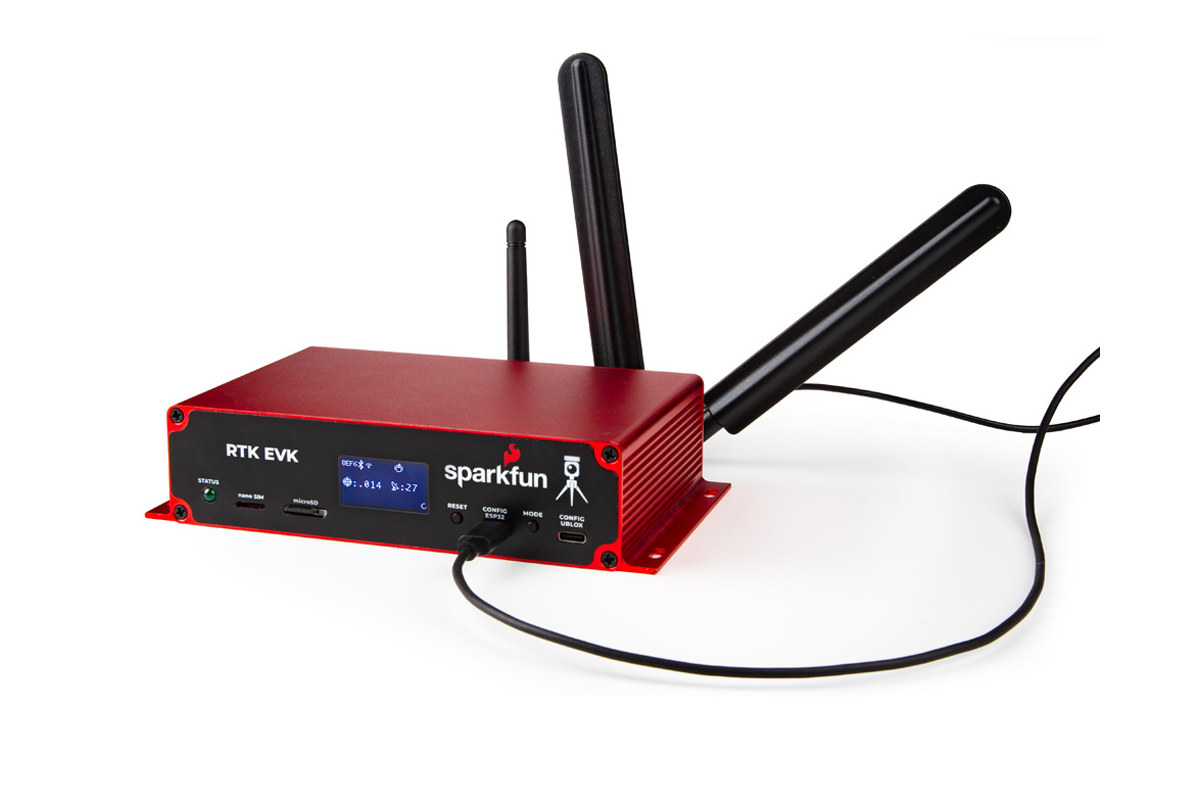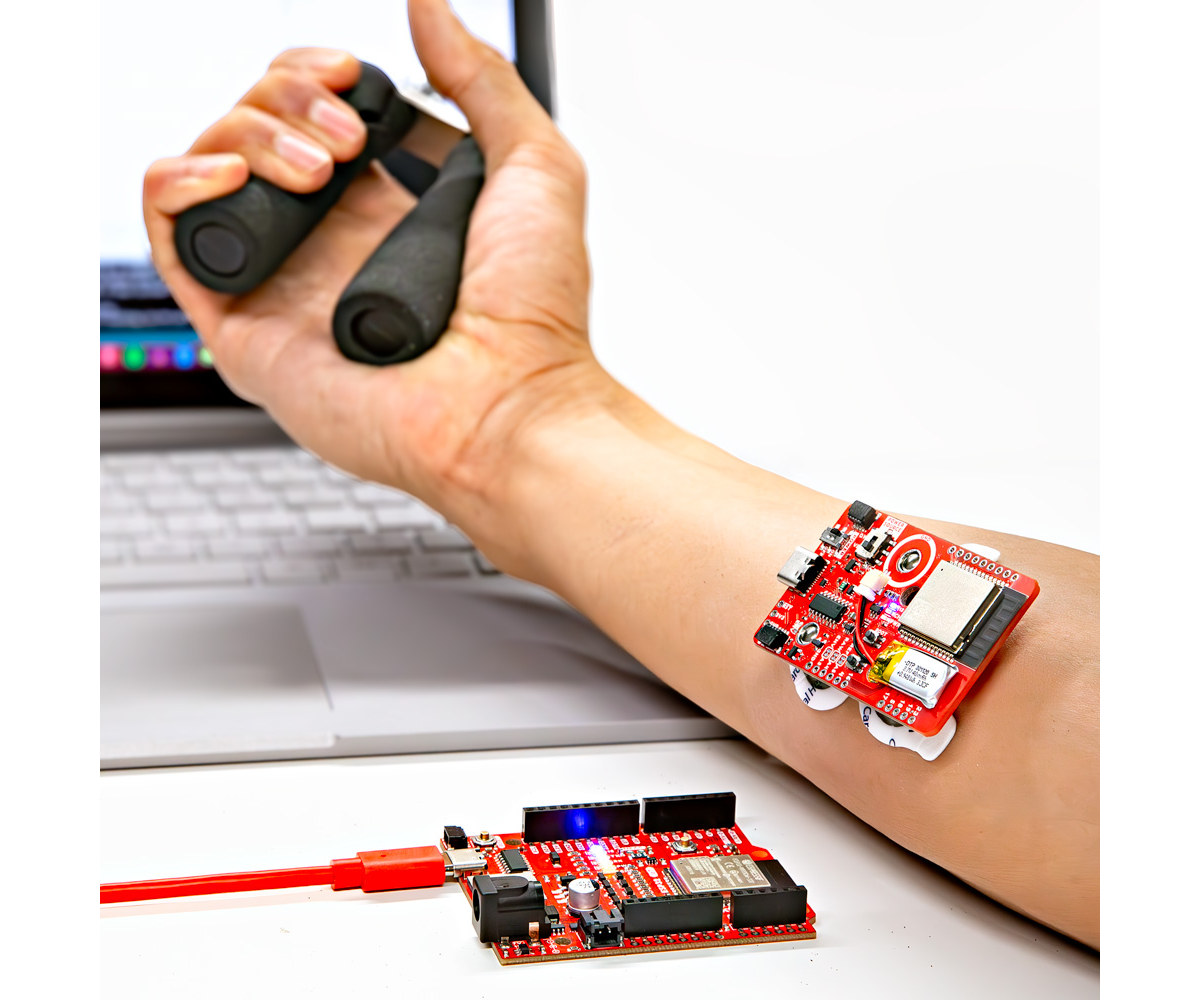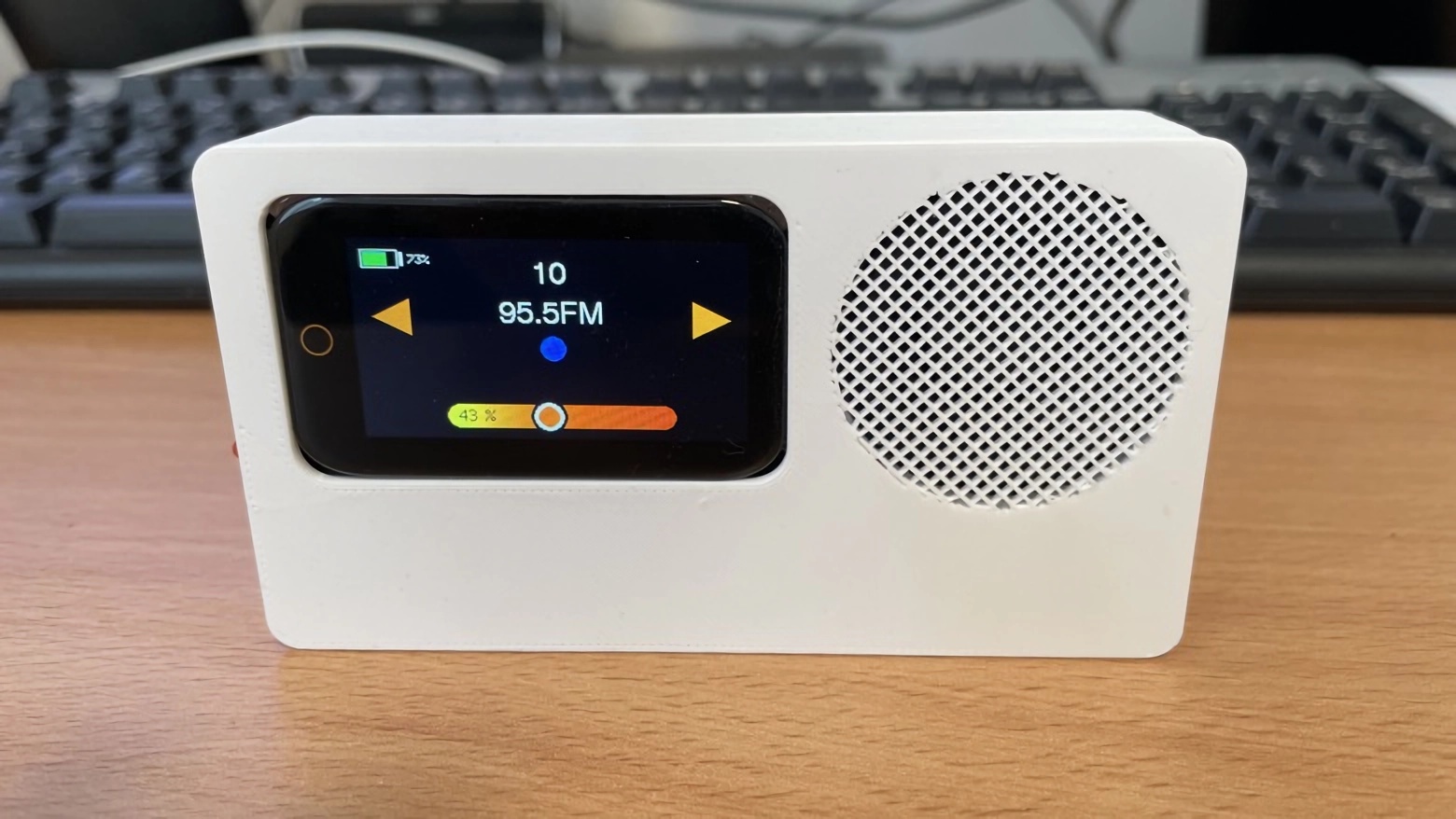SparkFun has released the Quadband GNSS RTK Breakout featuring the Quectel LG290P module designed for high-precision real-time kinematic (RTK) applications. It supports GPS, GLONASS, Galileo, BDS, QZSS, and NavIC constellations, with the ability to simultaneously receive signals from L1, L2, L5, and L6/E6 frequency bands. The module includes support for SBAS augmentation systems (e.g., WAAS, EGNOS, GAGAN) and PPP services (e.g., BDS PPP-B2b, QZSS CLAS), delivering reliable positioning with fast convergence times for precision navigation tasks. The breakout board offers a compact design (43.2 x 43.2mm) and multiple expansion options including 24 PTH pins, dual 4-pin JST Qwiic connectors, three UART interfaces, a USB-C connector, and additional PTH pins for BlueSMiRF/Serial-to-UART. With its RTK support and advanced GNSS capabilities, the board is ideal for applications requiring high-accuracy positioning and robust navigation performance. Previously, we covered several GNSS boards including the SparkFun GNSS L1/L5, u-blox EVK-LEXI-R10, and Conexio Stratus Pro and […]
SparkFun’s $125 “Indoor Air Quality Combo Sensor” combines the SCD41 and SEN55 environmental sensors
SparkFun has released a new air quality multi-sensor board, the Indoor Air Quality Combo Sensor, which integrates the SCD41 and SEN55 sensors from Sensirion for measuring carbon dioxide, volatile organic compounds (VOCs), particulate matter, relative humidity, and temperature. The air quality multi-sensor board simplifies power management for the two sensors via onboard DC voltage conversion and allows a single Qwiic connection for power and communication. It features two Qwiic connectors and a 0.1”-space through-hole header for I2C and power. The board is not a complete solution for indoor air quality monitoring. It has to be connected to a Qwiic-enabled microcontroller such as SparkFun Thing Plus Matter, DataLogger IoT, and the ESP32 Qwiic Pro Mini. Users can install the required Arduino libraries — the Arduino Core library, Sensirion I2C SEN5x, and SparkFun SCD4x — either via the Arduino library manager or directly from SparkFun. The device is open-source, with hardware files, […]
Raspberry Pi Pico Arduino core 4.0 adds support for RP2350 boards
Earle F. Philhower, III has just released the Raspberry Pi Pico Arduino core 4.0 with support for a range of Raspberry Pi RP2350 boards beside the official Raspberry Pi Pico 2. Shortly after the RP2040-based Raspberry Pi Pico board was released, we got two Arduino SDKs, the first being the community-supported Raspberry Pi Pico Arduino core maintained by Earle, and the second being the official Arduino Core Mbed 2.0 for boards as such as Arduino Nano Connect RP2040. We are again likely to have two Arduino SDKs for the RP2350 starting with the Raspberry Pi Pico Arduino core. Key changes in Raspberry Pi Pico Arduino core 4.0: Adds Raspberry Pi RP2350 support (Arm only; RISC-V cores are not supported at this stage) Migrates to Pico SDK 2.0 since it is required for RP2350 support and includes a new OpenOCD and Picotool. Tested features: SPI, I2C, LittleFS, EEPROM, PWMAudio, LWIP-based networking, […]
SparkFun Pro Micro – RP2350 development board comes with 16MB flash, 8MB PSRAM
The SparkFun Pro Micro – RP2350 is a compact and powerful development board built around the RP2350 chip from Raspberry Pi and equipped with 16MB flash and 8MB PSRAM. It follows the updated Pro Micro design and includes a USB-C connector, Qwiic connector, WS2812B RGB LED, Boot and Reset buttons, resettable PTC fuse, and both PTH and castellated solder pads. Last week, besides the Raspberry Pi Pico 2, we wrote about more boards with the Raspberry Pi RP2350, like the XIAO RP2350, Solder Party’s RP2350 Stamp, and Cytron MOTION 2350 Pro. Feel free to check them out if you are interested in these boards. SparkFun Pro Micro – RP2350 specification Microcontroller – Raspberry Pi RP2350A MCU CPU Dual-core Arm Cortex-M33 @150MHz with Arm Trustzone for secure boot Dual-core 32-bit Hazard3 RISC-V @ 150MHz Up to two cores can be used at the same time Memory – 520 KB on-chip SRAM […]
SparkFun Thing Plus – NORA-W306 – A dual-band Wi-Fi 4 and BLE 5.3 IoT board
SparkFun Thing Plus – NORA-W306, is a dual-core, dual-band WiFi 4 and BLE 5.3 microcontroller board in the AdaFruit Feather form factor based on the u-box NORA-W306 module and targeted at low-power wireless applications. The u-blox module integrates the Realtek RTL8720DF chip, a dual-core ARM Cortex-M33 and Cortex-M23 microcontroller with dual-band Wi-Fi (2.4GHz and 5GHz) and Bluetooth 5.3 Low Energy. It offers up to 4MB of encrypted flash and has an onboard PCB antenna. It’s very similar to the RealTek RTL8720DN we covered a few times in the past, but comes with embedded flash. The SparkFun Thing Plus – NORA-W306 board features a USB-C connector for programming, data, and power. The USB data lines are protected against electrostatic discharge and are connected to a CP2102N USB-to-serial converter for uploading code or serial. This board includes a 2-pin JST-style connector for a LiPo battery, a single-cell charger, and a LiPo fuel […]
SparkFun RTK EVK offers GNSS with centimeter accuracy, WiFi, Bluetooth, 4G LTE Cat 1, and Ethernet connectivity
SparkFun RTK EVK is a fully-enclosed GNSS platform designed for fixed or mobile high-precision positioning and navigation applications with centimeter accuracy thanks to RTK (real-time kinematic) technology implemented with modules from u-blox. About two months ago, Sparkfun introduced the RTK Torch waterproof GNSS surveyor with Unicore UM980 GNSS module with RTK support, ESP32 for WiFi/Bluetooth, and an STM32WLE5C LoRa SoC. The SparkFun RTK EVK (evaluation kit) may drop LoRa connectivity, but it’s a more versatile platform with WiFi, Bluetooth, Ethernet, and LTE Cat 1 cellular connectivity, besides support for L1 + L2 RTK GNSS with L-Band correction. Sparkfun RTK EVK specifications: GNSS Receiver – u-blox ZED-F9P Concurrent reception of GPS, GLONASS, Galileo, and BeiDou Receives both L1C/A and L2C bands 184-channel u-blox F9 engine Time to First Fix: 25s (cold), 2s (hot) Max Navigation Rate: 20Hz / 25Hz depending on mode Horizontal Position Accuracy: 2.5m without RTK; 0.010m with RTK […]
MyoWare 2.0 Muscle Sensor Wireless Kit targets electromyography (EMG) applications
The MyoWare 2.0 Muscle Sensor Wireless Kit is an Arduino-compatible electromyography (EMG) sensor kit capable of detecting and measuring the electrical signals generated by muscle fibers in the body. The MyoWare 2.0 kit is a collaborative product by SparkFun and Advancer Technologies. The MyoWare 2.0 ecosystem brings several improvements over the previous generation, including a compact design, solderless snap connectors, and an upgraded chipset for improved reliability and performance. It includes shields designed to seamlessly interface with the MyoWare 2.0 Muscle sensor, a wearable, Arduino-compatible EMG sensor. The Muscle Sensor’s wearable design makes it possible to directly attach biomedical sensor pads and add-on shields to the board. It operates on a single-supply voltage between +3.3V to +5V and supports three separate output modes. It analyzes filtered and rectified activity from muscle movement and outputs a signal from 0 to the power source voltage (VIN) that represents the intensity of flex. […]
ESP32-S3-based kit allows you to build an Internet Radio with a touchscreen display
The ESP32 Internet Radio from Poland-based maker, The MicroMaker, is a simple hardware kit that combines the LilyGo T-Display S3 Development board with an I2S audio breakout module and other components to form a radio that can access and stream from online radio stations. With the ESP32 Internet Radio, you are not limited to the radio stations available in your immediate vicinity. It is powered by the LilyGo T-Display S3 which integrates the network-capable ESP32-S3 microcontroller (Wi-Fi + BLE 5), a 1.9” full-color capacitive touchscreen display, and two programmable buttons. The ESP32-S3’s integrated Wi-Fi capability allows the radio to connect to the Internet, and the touchscreen brings an intuitive and easy-to-use interface to the device. It supports up to 512 stored radio stations, and you can manage these stations from a web browser on your PC or mobile phone. The Internet Radio can be powered by an 18650 Lithium-ion battery […]


